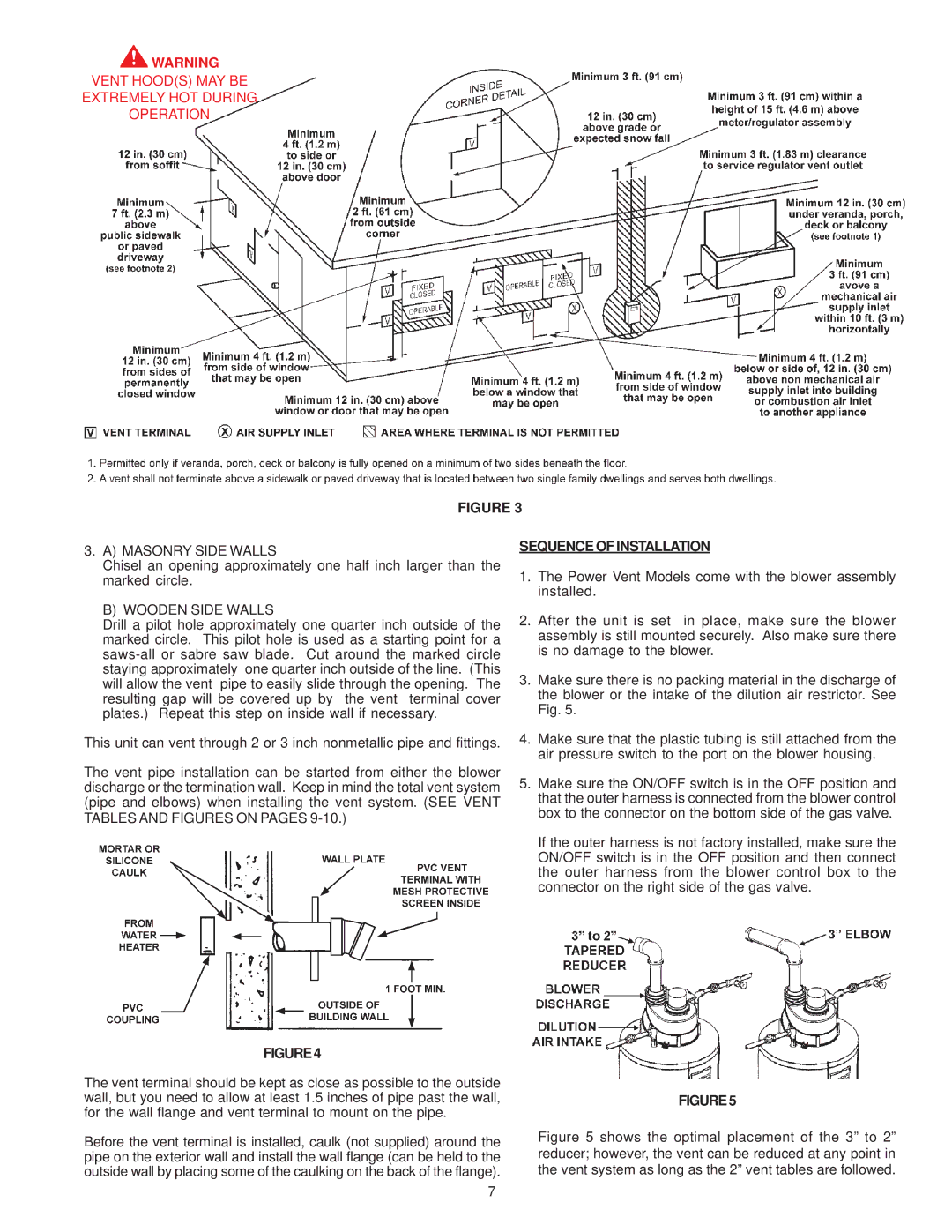
![]() WARNING
WARNING
VENT HOOD(S) MAY BE
EXTREMELY HOT DURING
OPERATION
FIGURE 3
3.A) MASONRY SIDE WALLS
Chisel an opening approximately one half inch larger than the marked circle.
B) WOODEN SIDE WALLS
Drill a pilot hole approximately one quarter inch outside of the marked circle. This pilot hole is used as a starting point for a
This unit can vent through 2 or 3 inch nonmetallic pipe and fittings.
The vent pipe installation can be started from either the blower discharge or the termination wall. Keep in mind the total vent system (pipe and elbows) when installing the vent system. (SEE VENT TABLES AND FIGURES ON PAGES
SEQUENCE OF INSTALLATION
1.The Power Vent Models come with the blower assembly installed.
2.After the unit is set in place, make sure the blower assembly is still mounted securely. Also make sure there is no damage to the blower.
3.Make sure there is no packing material in the discharge of the blower or the intake of the dilution air restrictor. See Fig. 5.
4.Make sure that the plastic tubing is still attached from the air pressure switch to the port on the blower housing.
5.Make sure the ON/OFF switch is in the OFF position and that the outer harness is connected from the blower control box to the connector on the bottom side of the gas valve.
If the outer harness is not factory installed, make sure the ON/OFF switch is in the OFF position and then connect the outer harness from the blower control box to the connector on the right side of the gas valve.
FIGURE4
The vent terminal should be kept as close as possible to the outside wall, but you need to allow at least 1.5 inches of pipe past the wall, for the wall flange and vent terminal to mount on the pipe.
Before the vent terminal is installed, caulk (not supplied) around the pipe on the exterior wall and install the wall flange (can be held to the outside wall by placing some of the caulking on the back of the flange).
FIGURE5
Figure 5 shows the optimal placement of the 3” to 2” reducer; however, the vent can be reduced at any point in the vent system as long as the 2” vent tables are followed.
7
